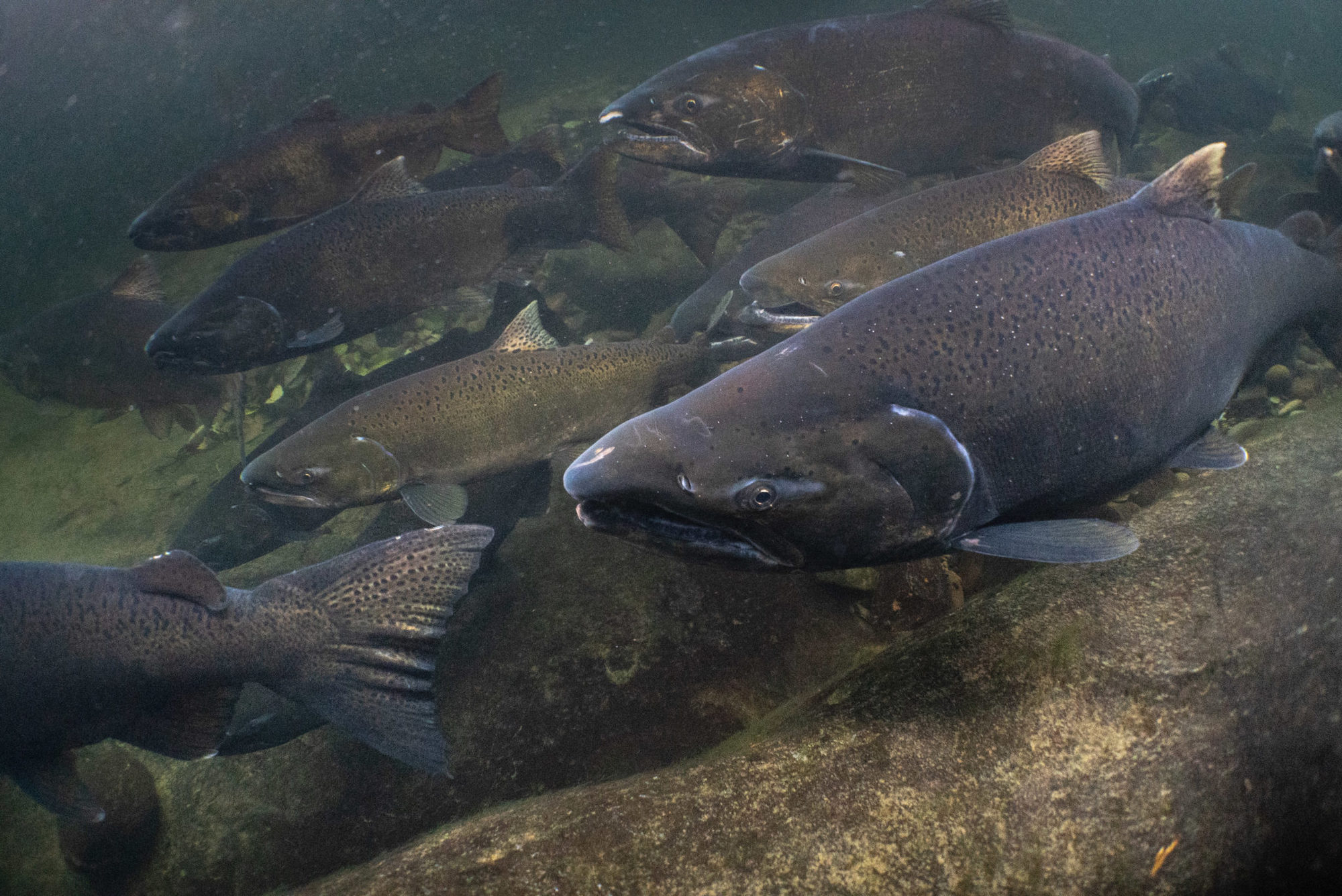
March 19, 2018
Duvall, WA/Sidney, BC: Researchers from Wild Fish Conservancy, Raincoast Conservation Foundation, and the University of Montana are proposing an alternative framework for certifying wild salmon. The alternative is explained in a paper newly published in the open access journal FACETS titled “Criteria for a good catch: A conceptual framework to guide sourcing of sustainable salmon fisheries”.
The new framework is grounded in the “place-based” concept of salmon management. This place-based foundation recognizes the ecological connection between wild salmon and the natal watersheds in which they spawn, rear and to which they are locally adapted.
“Open ocean, mixed-stock salmon fisheries are a major cause of the coast wide loss of wild salmon populations and the failure of many populations to rebuild or recover from their currently depleted state,” said Nick Gayeski, the study’s lead author and scientist with the Wild Fish Conservancy. “Salmon management needs to become place-based; this means fish are harvested near their rivers of origin, the fishery has high confidence in the number of salmon that can be safely harvested, and the diversity of wild salmon is maintained over multiple generations, especially in the face of rapid climate change,” continued Gayeski. “Place-based fisheries must also demonstrate low or negligible by-catch of non-target salmon, and release any non-target salmon caught, unharmed.”
The proposed new framework for identifying sustainably harvested salmon suggests that individual retailers develop criteria (or adopt others) that complies with this place-based foundation. Patagonia Provisions, for example, is one retailer requesting this high standard of certification because their customers want higher standards than are currently available.
“The uniqueness of each river, and the salmon runs that return to them, drive this criteria,” said Misty MacDuffee, a co-author and biologist from the Raincoast Conservation Foundation. “Conventional fisheries have failed to manage salmon sustainably, place-based management addresses this; less salmon would be caught, their value would be higher, more salmon would reach spawning grounds, and fishery impacts on non-target salmon would be reduced. It also lets the consumer know how, and where (specifically), each salmon was caught. Consumers want this level of sustainability and accountability.”
The authors argue that sourcing sustainable salmon products using the proposed criteria will provide more transparent and trustworthy salmon products to retailers and consumers than existing large-scale certification programs such as Marine Stewardship Council and Seafood Watch, while also shifting salmon management to more local and sustainable ‘place-based’ harvest.
Press contacts :
Nick Gayeski, Wild Fish Conservancy, Duvall WA, Email: nick@wildfishconservancy.org
Phone: 425-788-1167. xt. 225
Misty MacDuffee, Raincoast Conservation Foundation Email: misty@raincoast.org
Cell: 250-818- 2136
Journal URL : http://www.facetsjournal.com/doi/10.1139/facets-2016-0078